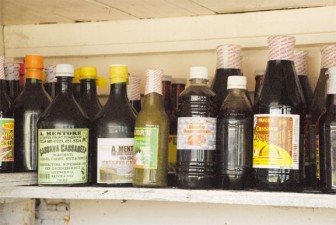New food safety legislation enacted by the Obama administration and scheduled to come into force in January next year could hurt local exporters of food to the United States, according to Head of the Government Analyst Food and Drugs Department Marilyn Collins
Come January the United States Food and Drug Administration (FDA) will begin to enforce the Food Safety Modernization Act (FSMA) passed into law earlier this year and requiring prior testing of food products being imported into the United States by accredited in-country laboratories.
The new legislation, which covers all primary and processed agro products, cooked foods, beverages and dietary supplements, also requires exporting countries to provide evidence that food handlers are Hazard Analysis Critical Control Point (HACCP) – certified.

HACCP certification applies to persons involved in the production, handling and transportation of the food products as well as those involved with the materials and equipment associated with the production of the foods.
Collins told Stabroek Business that the costs associated with ensuring compliance with the new United States regulations might well prove prohibitive for some exporters. She said she believes that most of the country’s major food producers are probably already aware of the new regulations though she added that with the advent of the new legislation the Food and Drugs Analyst Department will now be required to take measures to ensure that all local food exporters are thoroughly sensitized to the various provisions.
Small and medium-sized businesses have already begun to benefit from sensitization exercises which are being offered by the department free of cost. The programmes, according to Collins, are likely to continue beyond the implementation of the new legislation.
The Food Safety Modernization Act is being implemented as yet another food contamination measure which seeks specifically to guard against bio-terrorism. Food exporters who fail to meet the requirements set out under the new legislation are likely to be denied access to the US market. Collins says that small exporters may well have to pool their resources in order to meet the cost of HACCP certification.
HACCP is a safety assurance requirement that falls under the ISO220 international standard. The requirements of the new legislation will be implemented in phases between January and December next year.
Guyana apart, several other Caricom countries that have been long-standing exporters of various foods to the United States are likely to be affected by the legislation. Several regional economies depend to varying extents on the export of agricultural and other commodities to the United States. Jamaica, particularly, has created lucrative niche markets in parts of the United States for cooked foods including Jamaican patties and jerk meats.
Guyana’s main food exports to the United States include sea food and agricultural products though in recent years the volume of curry powder, chow mein, pepper sauce, seasonings, casareep and cassava bread exports to the United States have been increasing.
Operators in the local seafood industry are already familiar with the HACCP certification, the requirement having become law under legislation passed in the National Assembly in 2002.
Stabroek Business has learnt that the various food and drug administration bodies in Jamaica, Trinidad and Tobago and Barbados have all been formally notified of the impending implementation of the new legislation though the local body is yet to be officially notified. Collins says that that the fact that Guyana is yet to receive formal notification of the HACCP requirement may suggest that food exports to the USA from Guyana do not carry a high level of risk. Overall food export statistics to the United States from Guyana are believed to be modest though no reliable data is available.
Recently, the authorities in Jamaica expressed concern over the fact that more than 80 per cent of the country’s 200-odd exporters and traders are yet to meet the new certification requirements. Accordingly, the Bruce Golding administration has agreed to make available to the local private sector a loan of J$100 million to assist the country’s exporters in the certification process.
Collins told Stabroek Business that she believed it was in the interest of the Government of Guyana to provide support measures for local exporters in order to avert the loss of markets. Some exporters have already indicated that the cost of upgrading their processing plants to meet the certification requirements is likely to be unaffordable and this newspaper understands that other Caricom governments have begun to implement funding and technical assistance programmes aimed at averting loss of US markets.
Meanwhile, Collins says that the Government Analyst Department is in the process of readying its laboratory to conduct the required food inspections as part of the requirements under the new US legislation.




